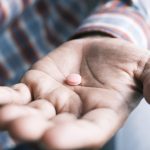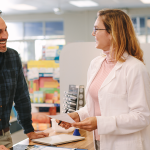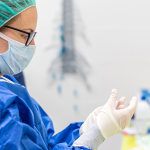Natural medicines: are your patients telling you everything you need to know?
The number of Australians using natural medicines to manage their health has risen dramatically over recent years. The 2018 Industry Snapshot by Complementary Medicines Australia reports that there are over 8 million regular consumers of natural medicines in Australia, creating a $4.9 billion industry that has doubled over the past 10 years.
Whether it’s vitamins, herbs, essential oils or weight loss supplements, chances are your patients may be using natural medicines on top of their prescribed pharmaceutical medication. With interactions between medicines a potential risk to your patients’ health, it’s vital that this information is disclosed by the patient during their consultation.
To find out more about patient attitudes to natural medicines, we surveyed 1,500 Australians on how natural medicines fit into their lives, and whether or not they disclose their usage to their GP.
- Natural medicines are popular: The use of natural medicines amongst respondents is high, with 77% taking at least one type of vitamin or supplement.
- Food is considered to be medicine:58% agree that food is medicine, with many respondents commenting on the essential role that food plays in promoting a long and healthy life.
- GPs aren’t always made aware: 53% of survey respondents do not talk to their doctor about vitamins or supplements they may be taking.
- It’s not seen as an important topic: The most common reason to not disclose natural medicine use is because the respondents have never thought about it. In addition, 22.77% do not feel it is relevant, or that they need to disclose this information to their doctor.
- Some patients don’t feel comfortable: Many respondents don’t feel comfortable talking to their GP about their use of natural medicines, as evident in some of the open feedback. Comments include “Doctors tend to shun vitamins”, “Vitamins are not part of the medical curriculum and I don’t think doctors understand”, and “I have tried but my current GP does not welcome this conversation”.
- Many GPs don’t ask: It is still not common practice for GPs to ask their patients about any natural medicines they may be taking. 53.25% said that their doctor has never asked them about their use of alternative medicines.
Start the conversation about natural medicines
Regardless of your own beliefs, it’s clear that many patients are using natural medicines to manage their health. That’s why it’s important to create an environment where patients feel comfortable sharing this information with you. Otherwise, the risk of a harmful interaction, or a reduction in efficacy of a prescribed medication, could occur.
Proactively asking about a patient’s use of vitamins, supplements and alternative therapies, and listening without judgement, is key. And once they’ve disclosed that to you, a willingness to research any potential interactions or side effects will help to create a positive patient experience.
Fortunately, there are digital resources available that have been designed to provide this information to busy health professionals. AusDI, Australia’s only independent digital drug database, also includes the Natural Medicines database, which lists the label information of nearly all vitamins and supplements sold in the US.
With the prevalence and popularity of natural medicines growing, the Natural Medicines database is updated regularly to keep GPs and Pharmacists across the latest developments in dietary supplements, natural medicines and integrative therapies.









